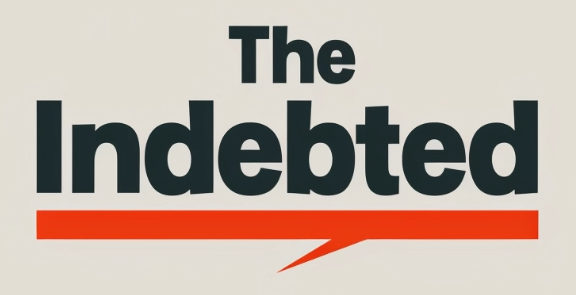Debt is a common financial tool that many people use to achieve their goals. It can help you buy a house, get an education, or start a business. However, debt can also have a negative impact on your credit score, which is a three-digit number that represents your creditworthiness. Your credit score is an important factor that lenders consider when deciding whether to approve your loan application or offer you a credit card.
If you have a lot of debt or have missed payments, your credit score may be lower than you would like it to be. A low credit score can make it harder to get approved for credit and may result in higher interest rates and fees. However, there are steps you can take to rebuild your credit score. By understanding how debt affects your credit score and taking action to improve it, you can increase your chances of getting approved for credit and save money on interest and fees.
Understanding Credit Scores and Debt
As an individual, it is important to understand how credit scores work and how debt can impact them. Credit scores are calculated by credit bureaus based on a variety of factors, including payment history, credit utilization, credit history length, and types of credit used. Understanding these components is essential to understanding how debt affects credit scores.
Components of a Credit Score
Payment history is the most important component of a credit score, accounting for 35% of the score. Late or missed payments can have a significant negative impact on a credit score. Credit utilization is the second most important component, accounting for 30% of the score. This is the amount of credit used compared to the total credit available. High credit utilization can indicate a high level of debt and can negatively impact a credit score.
Credit history length accounts for 15% of a credit score. This is the length of time an individual has had credit accounts open. Having a longer credit history can positively impact a credit score. Types of credit used and new credit inquiries each account for 10% of a credit score.
How Different Types of Debt Impact Credit
Different types of debt can impact credit scores in different ways. Revolving debt, such as credit card debt, can have a significant impact on credit utilization and, therefore, credit scores. High revolving debt can indicate a high level of risk to lenders and can negatively impact credit scores.
Installment debt, such as car loans or mortgages, can also impact credit scores. Payment history is particularly important with installment debt, as missed or late payments can have a negative impact on credit scores.
It is important to monitor credit reports regularly to ensure that all information is accurate and up to date. Negative information, such as missed or late payments, can remain on credit reports for up to seven years and can have a significant impact on credit scores.
Effects of Negative Credit Behaviors
Negative credit behaviors can have a significant impact on your credit score. In this section, I will discuss two of the most common negative credit behaviors that can affect your credit score.
Late Payments and Your Credit
Late payments can have a significant impact on your credit score. According to The Balance, payment history accounts for 35% of your credit score. A single late payment can stay on your credit report for seven years, and the longer you go without making a payment, the more damage it can do to your credit score.
One way to avoid late payments is to set up automatic payments. This way, your payment is made on time every month, and you don’t have to worry about missing a payment.
The Long-Term Impact of Bankruptcy
Bankruptcy is a significant negative credit behavior that can have long-term consequences. According to Experian, a Chapter 7 bankruptcy will remain on your credit report for ten years, while a Chapter 13 bankruptcy will remain on your credit report for seven years.
If you file for bankruptcy, it can be challenging to rebuild your credit. One way to start rebuilding your credit is to get a secured credit card. A secured credit card requires a security deposit, which becomes your credit limit. By using a secured credit card responsibly, you can start to rebuild your credit.
Strategies for Rebuilding Your Credit
Rebuilding your credit is a process that takes time and effort, but it is possible with the right strategies. Here are some effective strategies that can help you rebuild your credit:
Debt Consolidation and Management
If you have multiple debts with high-interest rates, consolidating them into a single loan with a lower interest rate can help you pay off your debts faster and improve your credit score. Debt management plans can also help you pay off your debts by negotiating with your creditors to lower your interest rates and monthly payments. This can help you pay off your debts faster and improve your credit score.
Improving Payment History
Payment history is one of the most important factors that affect your credit score. Late payments can have a negative impact on your credit score, so it is important to make all your payments on time. Setting up automatic payments or reminders can help you make your payments on time and avoid late fees. If you have missed payments, catching up on them as soon as possible can help minimize the damage to your credit score.
Credit Utilization and Limit Management
Credit utilization is the ratio of your credit card balances to your credit limits. High credit utilization can have a negative impact on your credit score. Keeping your credit utilization below 30% can help improve your credit score. You can also improve your credit score by increasing your credit limit or applying for a new credit card account. However, it is important to use credit responsibly and avoid overspending.
Tools and Resources for Credit Improvement
Using Credit Monitoring Services
Credit monitoring services can be an excellent tool for credit improvement. These services can help you keep track of your credit score and alert you to any changes or potential fraud. Some popular credit monitoring services include Experian, TransUnion, and Equifax.
When using a credit monitoring service, it’s important to understand how it works. These services typically require you to sign up and provide your personal information. Once you’re signed up, the service will monitor your credit report and score and notify you of any changes. Some services also offer additional features such as credit score simulators and identity theft protection.
Leveraging Government and Non-Profit Programs
There are also several government and non-profit programs that can help you improve your credit score.
One such program is Experian Boost, which allows you to add utility and phone bill payments to your credit report. This can help increase your credit score by showing that you’re a responsible borrower.
Another useful resource is AnnualCreditReport.com, which allows you to request a free credit report from each of the three major credit bureaus once per year. This can help you keep track of your credit history and identify any errors or inaccuracies.
If you’re struggling with debt and need help rebuilding your credit, the Consumer Financial Protection Bureau (CFPB) offers resources and information on debt management and credit counseling. Additionally, the Federal Trade Commission (FTC) provides information on credit repair scams and how to dispute errors on your credit report.
Maintaining Good Credit Practices
Maintaining good credit practices is key to rebuilding your credit score. Here are a few things to keep in mind:
Responsible Use of New Credit
Opening a new credit card or taking out a personal loan can help improve your credit score, but only if you use it responsibly. Make sure you can afford the new credit before applying. Lenders will look at your credit history to determine if you are a good risk. If you have a history of late payments or have been sued by credit card issuers, your FICO score may be low.
If you are approved for new credit, make sure to use it wisely. Only charge what you can afford to pay back each month. Keep your credit inquiries to a minimum, as too many can hurt your credit score. Consider a secured card if you have trouble getting approved for traditional credit cards. These require a security deposit, but can help you establish credit and improve your credit score.
The Role of Personal Budgeting
Creating a personal budget is an important step in maintaining good credit practices. Start by tracking your income and expenses. Look for areas where you can cut back on spending and redirect those funds toward paying off debt.
Make a repayment plan to pay off your loan balance in a timely manner. You can consider making a lump sum payment or increasing your monthly payment to reduce the overall interest you pay.
Keep your credit utilization rate low by staying below your credit limit. Experts recommend keeping your credit utilization below 30% of your available credit.
If you are struggling to keep up with payments, reach out to an attorney or credit counselor for help. U.S. consumers are entitled to free weekly credit reports, which can help you monitor your progress.
Remember, rebuilding your credit score takes time and effort. By maintaining good credit practices, you can improve your FICO® score and regain control of your financial life.





